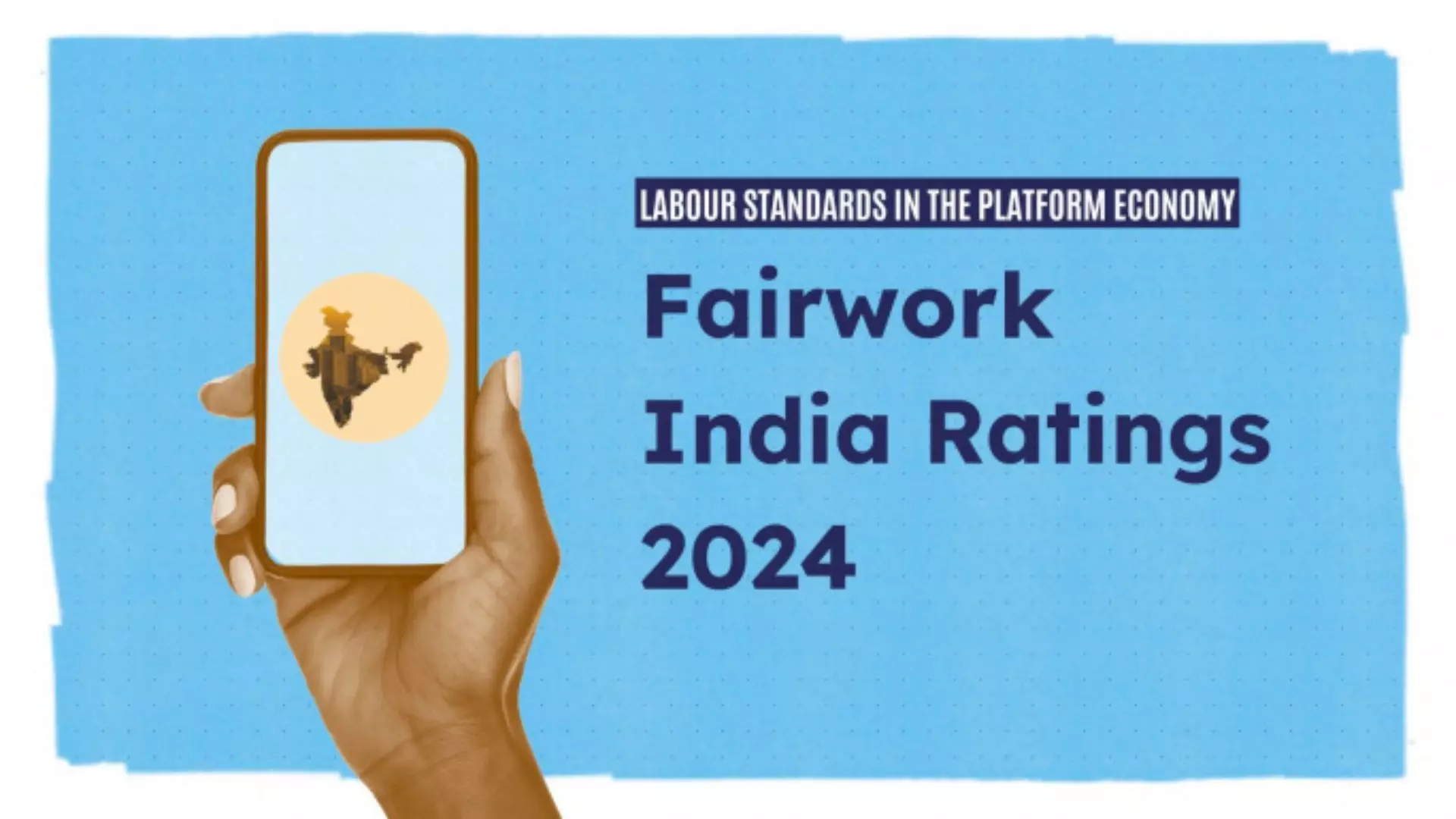Digital platforms refuse to recognise workers’ bodies

Chennai: Despite many instances of workers’ protests and strikes across the country, digital platforms in India refuse to formally recognise or negotiate with workers’ collectives, finds a study on fair work conditions of workers in digital platforms. Among digital platforms, Ola, Uber and Porter scored nil in ensuring fairness in terms of pay, work conditions, contracts, management and representation.
The sixth annual study by Fairwork India on the work conditions of workers on 11 digital platforms, including Amazon Flex, bigbasket, BluSmart, Flipkart, Ola, Porter, Swiggy, Uber, Urban Company, Zepto and Zomato, showed that they refused to recognise or negotiate with a collective or independent body of workers.
“It is disconcerting that despite the rise in platform worker collectivisation across the country over the past six years, there was insufficient evidence from any platform to show willingness to recognise a collective body of workers,” said Fairwork India.
Further, riding apps Ola and Uber as well as logistics app Porter did not score any point with regard to fair work principles.
In the case of Fair Pay, only two platforms, bigbasket and Urban Company, ensured that payments were made in full, and on time. Both platforms have a publicly available wage policy that commits to ensuring their workers will earn at least the hourly local minimum wage after factoring in work-related costs such as fuel, vehicle maintenance insurance, and data. But none of the platforms ensured that workers earn at least the local living wage after costs.
Amazon Flex, bigbasket, BluSmart, Swiggy, Urban Company, Zepto, and Zomato ensured that task-specific risks, including road accidents and injuries, theft, crime and violence, and adverse weather conditions were mitigated. However, only bigbasket, Swiggy, Urban Company, Zepto, and Zomato provided workers with accident insurance at no additional cost, monetary compensation for income loss when they were unable to work due to medical reasons other than accidents.
Further, bigbasket, BluSmart, Swiggy, Urban Company, Zepto, and Zomato took steps to improve accessibility through multi-lingual contracts that were clear and readily available to workers. bigbasket, BluSmart, Swiggy, Zepto, and Zomato ensured that contracts did not impose disproportionate liabilities.
Amazon Flex, bigbasket, BluSmart, Flipkart, Swiggy, Urban Company and Zomato provided a redressal mechanism for disciplinary actions. BluSmart, Swiggy, Urban Company and Zomato ensured adequate policies and processes to protect workers against discrimination.
